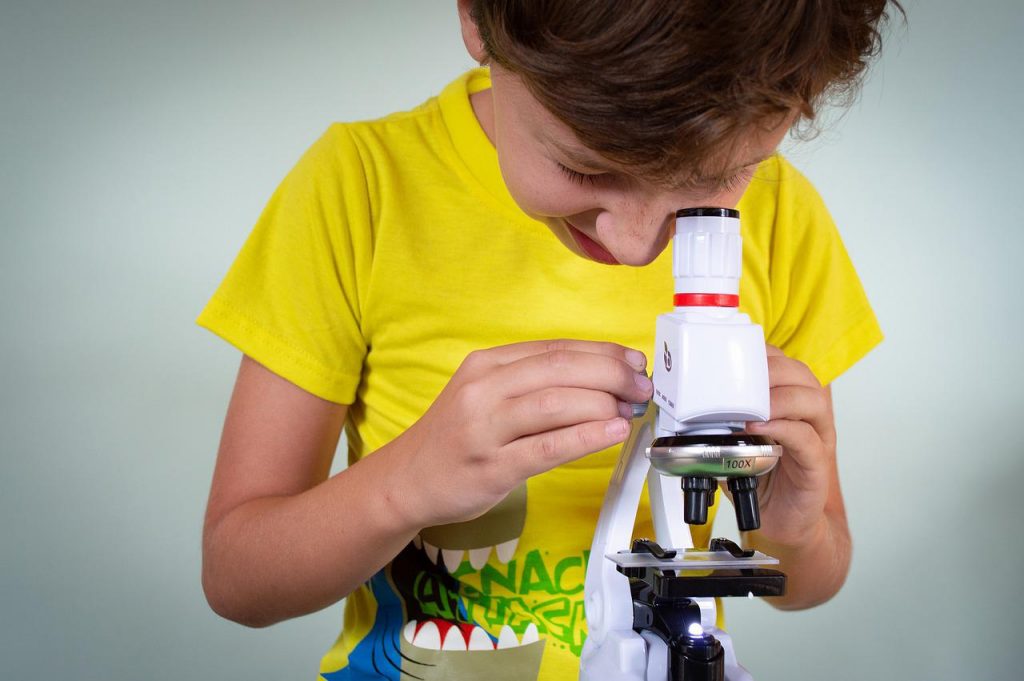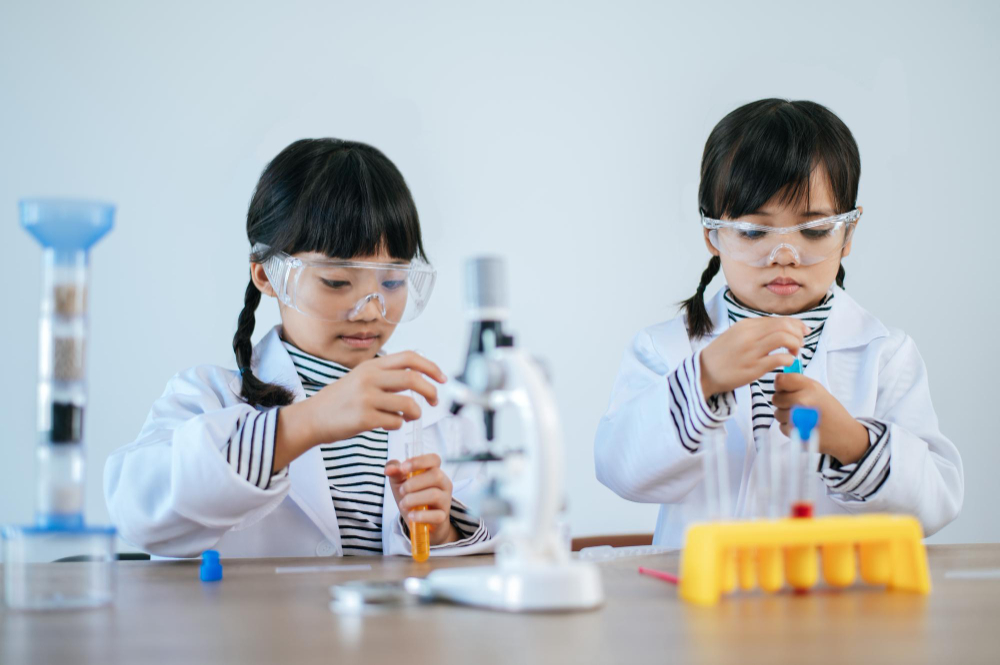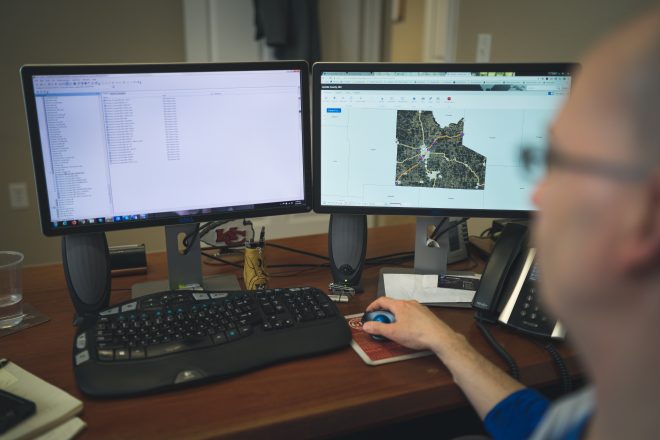Table of Contents
What does “Scientific Thinking’ means?
To put simply, it’s the desire to seek knowledge, analyze and understand how things work. If your kid thinks like a scientist, they are open to trying and learning new things, willing to go out of their comfort zone and are curious to find out how things work on their own.
It’s a problem-solving approach that helps people understand how things work by examining evidence and drawing conclusions.
1. Encourage kids to ask questions
Children are curious about the world around them. When you spend time with your children and give education to the kids, encourage them to raise questions by asking them the following questions: “What do you think about…?” or “What would happen if…?”

It’s important to show your kids that what they say or ask is valuable and worth hearing. Make sure you truly listen to their answers. Remember to be concise when answering your kids’ questions rather than giving them a long, complex speech of scientific facts. By exposing them to such opportunities, they can learn how to use their creativity to solve problems.
2. Don’t give the answer right away
It’s great when your kids ask you something interesting; however, you don’t have to be your kid’s encyclopedia. Let them try to figure out the answer first and then give them some clues to guide them to the answer. Why? It is important for kids to indulge in independent thinking. By stimulating their own thought process, they will be able to discover something new before asking for help from anyone!
3. Do scientific experiments together

Engage your kids with hands-on science experiments and activities as a fun and interactive way to foster their creativity and learn about trial and error. For example, to show your kid how sound works, put some rice on a pan sheet and hold it on a speaker: the rice will move due to the sound vibrations from your speaker! You never know, one experiment might be the light bulb moment that inspires your kid to be a scientist for life. Here are14 science experiments you can do together on the weekend or after school.
You can also bring science to life with these children’s science summer camps for aspiring scientists and researchers!
4. Record the process
Sometimes, an experiment can take a long time to get a result; for example, the bean plant experiment needs at least 3 days for us to see the plant start growing. Therefore, help your kid explore new concepts and encourage them to record what they have observed day by day to see the changes. One exciting way is to have them write, draw, or take pictures as ways to record observations. Another way is to use the scientific method! It’s a way to solve problems by gathering information and recording observations. Here’s a beginner’s guide to help you and your kid get started.
Observations and questions can grow your kid’s passion for discovery – the key to scientific learning!
5. Buy them scientific books
You can ignite your kids’ passion for science by introducing them to some great scientific books that are suitable for their age. Most of the scientific books for kids explain the most difficult concepts in a way that everyone can understand. Moreover, their captivating illustrations are also a bonus point for keeping your kid engaged!
6. Help them evaluate
After finishing an experiment, it’s time to use all the recorded findings to come up with a conclusion and answer the hypothesis. Taking the example of the bean plant experiment, it’s not only about teaching your kids how to grow a plant, but they also should know what factors influence the result, or simply, what makes a plant grow.
7. Learn from mistakes
What if the plant does not grow? Don’t be disappointed, or your kids will be too. Parents need to let their children know that sometimes success doesn’t come the first time around and that it’s okay. The important thing is how we can point out what we did wrong and learn from it, and then do the experiment again with a different approach or conditions to see the difference. It’s all trial and error, the scientific way!
8. Register your kid for virtual Science courses

You can inspire your kids and develop their interest in science through enriching extra hands-on classes in school. At Inspirely Education, enrolled students get frequent opportunities to participate in science related activities.
For the last two years, we have been helping children develop creative growth mindsets and grit building through our practical inquiry-based programs. As a premier Canadian virtual STEAM education provider, our educators make learning fun and keep kids engaged!



